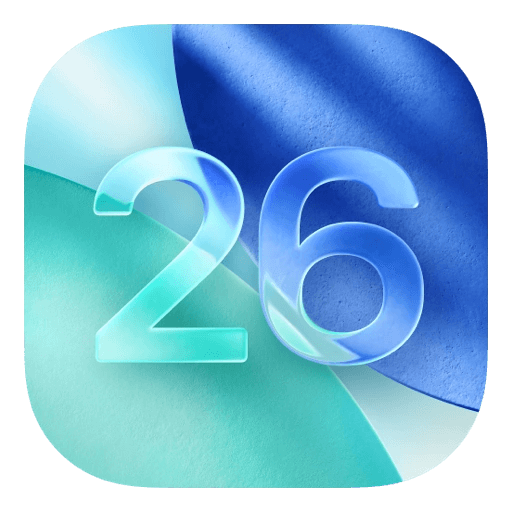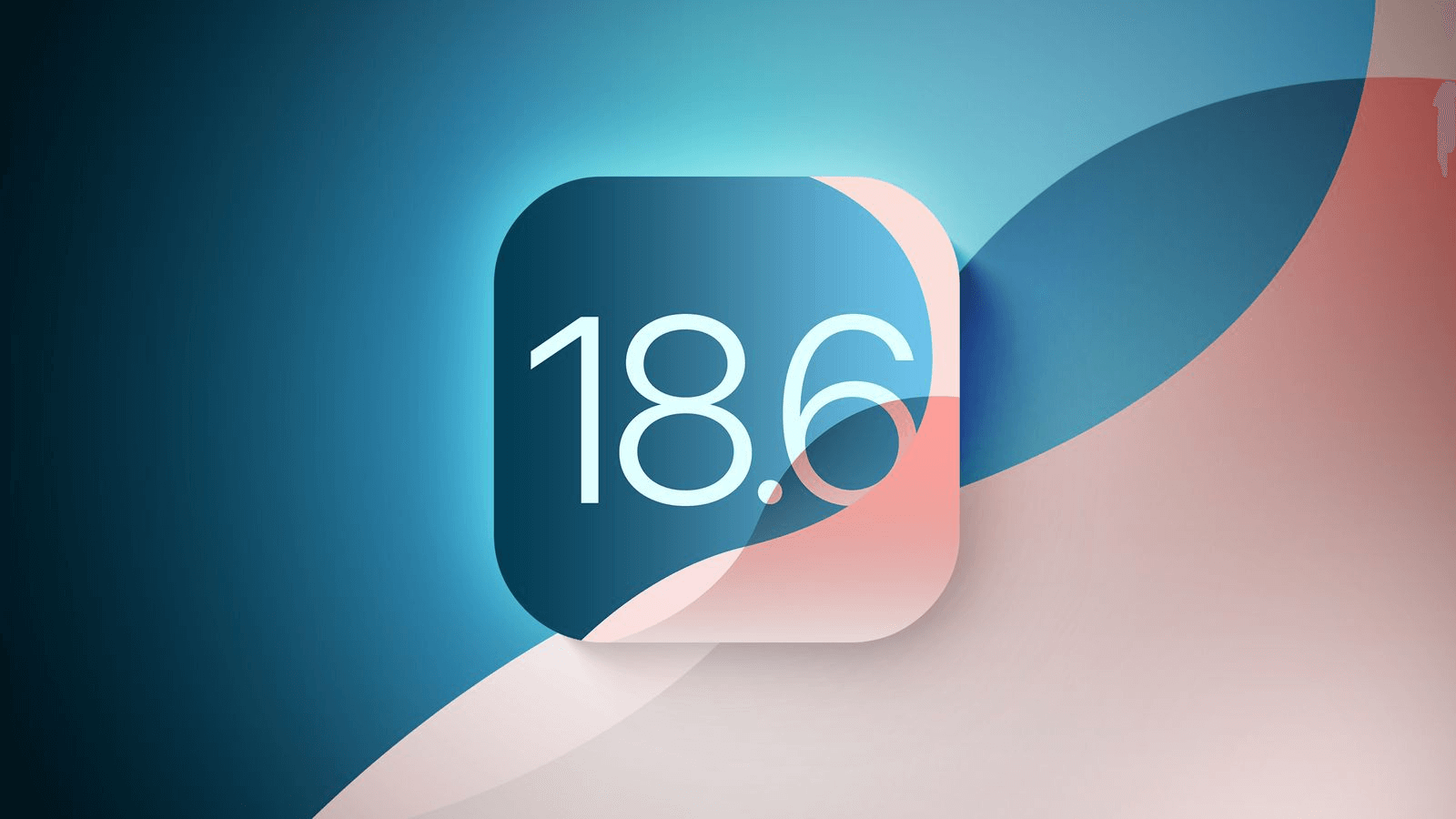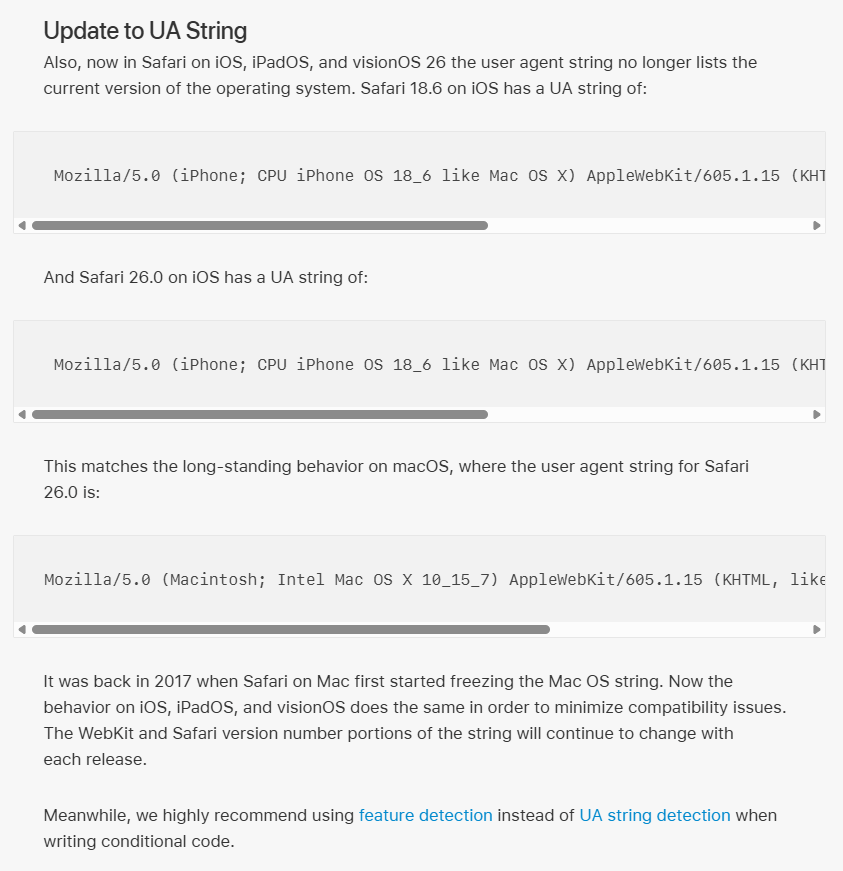How the iOS user agent change could impact you
TL;DR Summary
Prior to Apple’s release of iOS 26 on September 15, Kochava engineers identified a significant change in the beta and release candidate builds: The OS version reported in the Safari user agent is frozen at 18.6, rather than 26. Newly available release notes confirm that the change was intentional and follows similar actions by Apple and Google in the past to advance user privacy and reduce signal… (Click to expand)
This “frozen” user agent impacts iOS app measurement and attribution, as certain reporting systems relying on the user agent for OS version will show incorrect data. While the initial impact may be small, the long-term effect will be a decline in the ability to distinguish unique iPhone and iPad devices, potentially reducing attribution accuracy. Kochava is already implementing updates to address this, sourcing OS versions from their SDK and ensuring continued modeled attribution support. This change reinforces the trend of signal reduction, and Kochava is positioned to help marketers navigate this evolving landscape with privacy-first solutions including SKAN support and next-generation marketing mix modeling (MMM).
iOS 26 is here. Apple officially dropped its latest operating system (OS) update on September 15. While the mobile industry is focusing on the usual wave of updates and user adoption, the engineering team at Kochava identified a change in the release candidate that could impact your iOS measurement and attribution if you’re not prepared.


What We Found: A “Frozen” User Agent
During routine testing of the iOS 26 beta, Kochava engineers noticed that the user agent provided by Apple’s own in-app web view and Safari browser reported an OS version of 18.6 rather than 26.
“Mozilla\/5.0 (iPhone; CPU iPhone OS 18_6 like Mac OS X) AppleWebKit\/605.1.15 (KHTML, like Gecko) Mobile\/15E148″
While this kind of version lag can occur in beta builds, we expected it to be corrected in the final release candidate (RC). However, the RC provided by Apple continued to report this “frozen” user agent of 18.6.
Now, based on updated release notes, it is confirmed that going forward Apple is intentionally freezing the OS version reported in the user agent string.

Apple previously started freezing the Mac OS string in Safari back in 2017. In 2020, Google froze the user agent string within Chrome on desktop followed by a staggered and gradual rollout on mobile versions. While Google added client hints to support the retrieval of attributes like the OS version in place of the user agent, Apple has not indicated any intention of doing the same. This latest change marks the continued march toward signal reduction and advancement of user privacy.
Why This Matters for iOS Marketers and Developers
This change has potential implications for the accuracy of your iOS app measurement.
Here are three key considerations:
- Any reporting that relies on the user agent to determine the OS version will be incorrect. Your dashboards will show devices running iOS 26 as if they are on iOS 18.6.
- From a user agent perspective, a device on iOS 26 will look identical to a device on iOS 18.6. This creates scenarios where two different devices with the same IP address and device model—but running different OS versions—would appear to be identical.
- At first, the impact will be small. However, as adoption of iOS 26 grows and Apple releases future iOS versions that may also be frozen at 18.6, the cardinality (or unique values) to distinguish distinct iPhone and iPad devices will decline. Wherein such signals are relied on for measurement or attribution, accuracy will be reduced.
NOTE: A separate callout is warranted for ad networks or marketers still leveraging varying forms of fingerprint attribution, something Apple prohibits. Freezing the OS version in the user agent string appears to be Apple’s latest step to remove access to signal about devices, which in turn creates technical limitations for companies attempting to bypass Apple’s AppTrackingTransparency framework.
Thawing the Impact: Kochava Readiness
Kochava has already been making necessary updates to accommodate this change. For example, work is underway to update analytics and reporting layers that parse OS versions from the user agent string to instead source the OS version from the dedicated value passed by the Kochava software development kit (SDK). The SDK-sourced value will always match the current OS at the device level, ensuring reporting stability and accuracy.
Updates have also been applied to ensure continued modeled attribution support. This is a common attribution method for SmartLinks that app advertisers leverage widely across owned channels and cross-promotional efforts wherein modeled attribution is allowed.
If you have questions about OS version in your Kochava data and/or have concerns about OS-version mappings in your own data flows, please contact your Client Success Manager or email support@kochava.com.
The Bigger Picture: Thriving in a Signal-Scarce World
This is another step in the ongoing trend of operating systems obscuring data signals to protect end users. As a privacy-forward measurement innovator, Kochava is uniquely positioned for the increasingly signal-scarce landscape.
Kochava is the only measurement partner that combines
- Best-in-class mobile attribution with configurable Privacy Profiles
- SKAN and AdAttributionKit support
- A comprehensive marketing mix modeling (MMM) solution
within a single platform.
Our vision is to empower customers to adapt and thrive as the ground transforms beneath them and the market shifts to signals that are privacy-protecting.
Have questions about your iOS settings within Kochava? Contact your Client Success Manager or email support@kochava.com.
To stay up to date on the latest industry news and trends, subscribe to our newsletter.
Not a Kochava client and want help with your iOS app strategy? Contact us.



